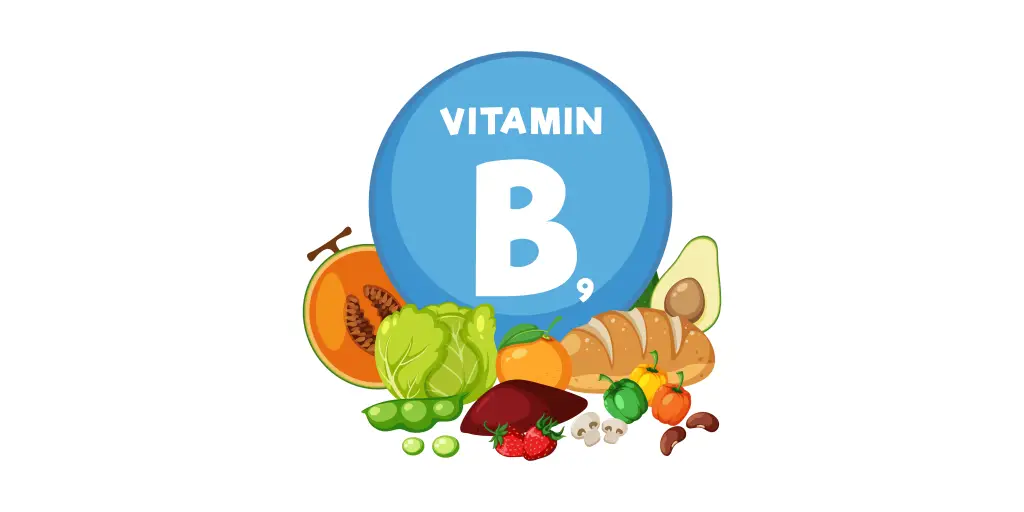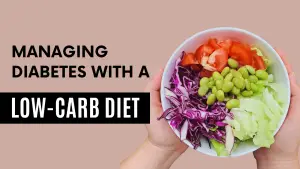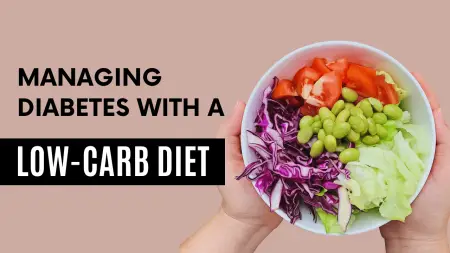Table of Contents
Introduction
In the complex dance of wellness, diet is at the heart of it. Eating healthy fuels us, but it also affects our overall health and well-being. Explore the dynamic relationship between wellness and diet today with these 15 life-changing strategies that will revolutionize your approach to nutrition and self-care.
Unveiling the Link: Understanding Wellness and Diet
Holistic Approach to Health

Holistic health acknowledges that your physical, emotional, and mental health are connected. Your diet affects your energy, your mood, your resilience, and your overall well-being. When you practice holistic health and feed your body with nutritious foods, you are promoting overall health and well-being.
This interconnectedness highlights how dietary decisions, such as incorporating Moringa into your diet, not only enhance your physical health, but also your emotional and mental health, resulting in a healthier, happier, and more energetic life.
Nutrient-Rich Foods for Optimal Wellness

Fruits, vegetables, whole grains, lean proteins, and healthy fats are some of the best sources of nutrients for your body. Not only are they tasty, but they’re also the building blocks of healthy cells, a healthy immune system, and overall health.
Vitamins and minerals play a vital role in supporting healthy cells, aiding immune function, fighting free radical damage, and promoting overall health. When you focus on healthy foods, it’s not just about feeding your body; it’s about investing in your health and well-being and preparing you for a long, prosperous life.
Balancing Macronutrients

Carbohydrates give you long-lasting energy. Proteins help build and strengthen your muscles. Fats help control your hormones. When you eat the right combination of carbohydrates, proteins, and fats, you will have the energy to get through the day, the nutrients to support healthy tissue, and all the hormones your body requires to function properly.
To get the most bang for your buck, eat foods that include all three of these macronutrient types. This diversity means that you are getting a wide variety of essential nutrients that support your body’s performance and overall health.
Mindful Eating Practices

Mindful eating allows you to feel more in tune with your body and with the food you’re eating. By slowing down, savoring each bite, and listening to your body’s hunger/satisfaction cues, you can build healthier relationships with food and support digestion and overall well-being.
When you’re actively listening to your hunger signals, it’s important to start eating and stop eating when you’re comfortably full, not just until you’re full.
When you’re enjoying every bite of your food, you’re also taking time to savor the flavors, textures, tastes, and smells. This adds flavor to your meal and can help reduce the temptation to overeat.
If you incorporate mindful eating into your daily life, you’ll be able to make healthier, more conscious choices about what and how much you eat, which will help you build healthy, balanced relationships with food.
Hydration for Health

Water is essential for many functions in your body. It controls body temperature, removes toxins from your body, and helps you absorb nutrients. Dehydration can cause fatigue, headaches, and diarrhea. That’s why it’s so important to get plenty of water in your body every day.
The amount of water you need varies depending on a lot of different things. But it’s generally recommended to drink at least 8 glasses a day. Remember, staying hydrated is an ongoing process. You can also change your water intake depending on how active you are and what the weather is like.
By investing in hydration, you are investing in your health and supporting the natural functions of your body. When you enjoy every bite of your food, you also take the time to enjoy the flavors, textures, tastes, and smells of your food. This adds to the flavor of your food and may reduce the temptation to overeat. With mindful eating, you can make healthy, conscious choices about what and how much you eat each day.
The Gut-Brain Connection

Similar to the gut-to-brain connection, a healthy diet rich in fiber and probiotics acts like fertilizer for a vibrant community of gut bacteria. This abundant and diverse microbiome plays a vital role in brain health in many ways. For instance, it regulates the production of neurotransmitters, chemical messengers responsible for mood regulation, sleep regulation, and cognitive function.
The gut microbiota also communicates with the brain through the vaginal nerve. This is a complicated pathway that regulates emotional regulation and stress responses.
By making healthy dietary decisions that support your gut microbiome, you can support not just your digestive health, but potentially your mental health and even cognitive function.
Whole Foods vs. Processed Foods

The path to vibrant health is to embrace whole foods over processed foods. Whole foods are like nature’s treasure chest, rich in vitamins, minerals, and fiber — the building blocks for healthy bodies.
From colorful fruits and vegetables to whole grains loaded with complex carbohydrates, whole foods are the best way to nourish your body.
On the other hand, processed foods undergo extensive manipulation, stripping them of many of their essential nutrients and adding harmful ingredients such as unhealthy fats, too much sodium, and too many refined sugars.
These additives may appeal to the consumer, but they can lead to chronic health problems like obesity and heart disease, as well as diabetes.
By choosing whole foods, not only are we nourishing our bodies, but we’re empowering ourselves to make healthy, conscious decisions that fuel our health and set us up for success.
Eating for Energy

In the same way that a car needs gasoline to drive, our bodies need food to fuel their day-to-day activities and stay energized. The best way to get the most out of this internal engine is to eat foods that are rich in complex carbohydrates made from whole grains, vegetables, and lean proteins for long-lasting energy, as well as healthy fats for long-lasting strength.
Navigating Dietary Restrictions

No matter what your dietary restrictions or preferences are, meal planning can be a challenge. But with a little creativity and ingenuity, you can open the door to a healthier, more fulfilling diet. Try swapping out dairy for a plant-based option, and try new recipes that broaden your culinary palette. Plus, with online communities and consultation with nutrition experts, navigating dietary restrictions can be an empowering journey to a healthier and more enjoyable food experience.
The Role of Supplements

Even if you eat a balanced diet that provides all the nutrients you need, sometimes there are gaps in your diet. In these cases, supplements can be a great way to provide targeted reinforcements to improve your overall health. It’s important to consult with a healthcare provider or a registered dietitian to ensure you’re getting the right supplements. Your healthcare provider or dietitian can help you understand your specific needs and health goals. They can suggest specific supplements that match your unique dietary situation and help you on your way to better health. Keep in mind that supplements are meant to complement, not substitute for, a balanced and varied diet.
Meal Planning and Preparation

Healthy eating and managing a busy schedule go hand in hand. Schedule time each week for meal planning, grocery shopping to avoid impulse buying, and meal prep like chopping veggies or prepping grains to make sure you have nutritious options on hand. Batch cook larger portions on the weekends or use meal delivery to lighten the load and make sure you have healthy options all week long. Planning and preparing ahead can make it easier to maintain a healthy diet while managing a busy schedule.
Embracing Moderation

Fostering a moderate eating approach allows for enjoyment and health, rather than restrictive diets and deprivation. This means that you can enjoy your favorite foods occasionally, without feeling guilty or restricted, and prioritize whole, nutritious foods more often than not. This approach encourages flexibility and avoids feelings of deprivation, creating a sustainable and enjoyable relationship with food. Don’t forget that it’s okay to enjoy your favorite foods, just do it in moderation.
Stress Management and Emotional Eating

The best way to prevent emotional eating and promote overall well-being is to manage stress proactively. When we’re stressed, we often turn to food for solace, which can lead to unhealthy eating habits. Using stress-reduction strategies, such as meditation, deep breathing, or relaxing hobbies, can make a world of difference to your health. Stress-reduction techniques help to reduce the negative effects of stress, improving your relationship with food and encouraging mindful eating habits. When we manage stress proactively, we empower ourselves to make healthy, conscious dietary choices, resulting in a more balanced, sustainable approach to our well-being.
Social and Cultural Influences

Many social and cultural factors influence how we eat. Whether it’s peer pressure at a dinner party, cultural expectations surrounding food, or even external cues such as food ads, it’s important to be mindful in a variety of social situations. When you’re mindful, you’re empowered to make choices that reflect your values and align with your health goals. You’ll be able to recognize when external factors are pushing you to make unhealthy choices, and you’ll be more likely to make healthy choices that support your overall well-being. This means that you’ll have a better understanding of what’s working for you and what’s not, and you will be able to make more informed and personalized decisions about what’s best for you.
The Power of Self-Compassion

Self-compassion is a key component of a successful and long-lasting wellness journey. Self-compassion involves treating yourself with compassion, empathy, and forgiveness, particularly when faced with challenges or setbacks. Instead of setting yourself up for failure, celebrate your successes, even if they are small. See failure as an opportunity to learn and grow, and use it as a springboard for personal growth and continual improvement.
By cultivating self-compassion you build resilience and give yourself the emotional fortitude to weather the inevitable bumps along the way. Remember that self-compassion isn’t about feeling sorry for yourself; it’s about recognizing your humanity and providing yourself with the same love and support you would a loved one.
Conclusion
The dynamic relationship between wellness and diet is a profound journey of self-discovery and empowerment. By implementing these 15 strategies, you can harness the transformative power of nutrition to enhance your health, vitality, and overall quality of life. Embrace the synergy between nourishing your body and nurturing your well-being, and embark on a path of holistic wellness that radiates from within.
Also Read: 10 Ultimate Early Risers Guide to Positive Mindset Mastery
Quick Answers
How does diet impact overall wellness?
Diet plays a crucial role in supporting overall wellness by providing essential nutrients, regulating energy levels, and influencing mood and cognitive function.
What are some signs of an imbalanced diet?
Signs of an imbalanced diet may include fatigue, digestive issues, mood swings, weight fluctuations, and nutrient deficiencies.
Can I improve my wellness through diet alone?
While diet is an important component of overall wellness, incorporating other lifestyle factors such as exercise, stress management, and adequate sleep is also essential for optimal health.
How can I make healthier food choices when dining out?
When dining out, opt for dishes that are grilled, steamed, or roasted rather than fried. Choose side dishes with vegetables or salads, and ask for dressings and sauces on the side to control portions and minimize added fats and sugars.






